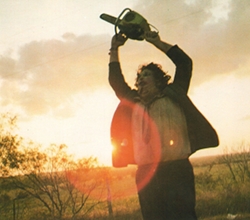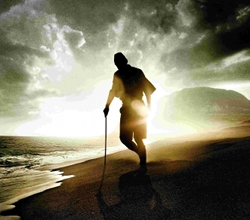Review: Blood Work (2002)
Having established himself with Space Cowboys as a director still with much to say, Eastwood’s next project was the thriller Blood Work. His career in uneasy territory following a string of mild failures, his reputation as a director yet capable of great things seemed to hang perilously in the balance.
An FBI profiler forced to retire after suffering a heart attack in pursuit of a serial killer, Terry McCaleb is pulled back into his former life when it is revealed that the woman whose heart he received via transplant was murdered by the very same serial killer in order to keep him alive and in the game. Enlisting the help of the dead woman’s sister, McCaleb rejoins the hunt and attempts to unravel the mystery behind the mayhem.
His fifth literary adaptation in six films, Blood Work saw Eastwood again turn his attention to a familiar scenario in American cinema, this time a detective thriller. Marred by mixed success since Absolute Power, the director’s efforts at bringing freshness to tired genres seemed predominantly unfruitful, his innovations too few to raise his output above the threshold of mediocrity. The screen has seen its fair share of serial killer thrillers and then some, the amount of times we’ve seen a detective personally taunted and egged on by his quarry making the genre bloated, tired, and altogether too unoriginal. It takes something special to lift a film from the depths of dullness which form so dangerous a pitfall for this, indeed any, overused narrative formula. Eastwood’s attempt at such an evasion comes in the form of an interesting recurring motif he employs: the concept of McCaleb being “guided” by the heart of the woman who has died to sustain his life. This might be construed a comment upon gender, the notably masculine game of cat and mouse between cop and killer eventually brought to a close by the feminine heart McCaleb is given. Whatever the intentions of this aspect of the film’s story, however, it seems more a narrative device than a means by which to explore a theme, never delving deep enough to escape the ultimate problem that is the film’s routine ticking-off of the genre conventions. McCaleb disobeys authority, goes renegade, finds an unusual sidekick, discovers evidence hidden in plain sight, involves himself in a dangerous romance, and discovers that all along, what he was looking for was closer than he thought.
Like True Crime in particular before it, Blood Work falls prey to precisely the same indulgence in sheer script laziness, nothing else in its implementation managing to make up for this shortcoming. Its secondary characters are poorly sketched at best, seeming to exist solely to advance the plot every now and then. This is, in every sense of the word, an average film, the benefits of its pros undone by the follies of its cons. Blood Work’s efforts at bringing something new and different are ultimately insufficient to overcome the plodding dullness of its straight adherence to a standard formula. Simply put, there is nothing new to be found in this movie, nothing that does anything for the genre, nothing to commit it in any way to memory, nothing to make watching it worthwhile. Though it tries something new with the tired old genre, Blood Work conforms too lazily with the standard narrative of the serial killer thriller to be anything more than average. Unoriginal, and thereby uninteresting, it is a poor offering from a director who seemed, after thirty years, to be running out of steam.
-
http://twitter.com/NextProjection Christopher Misch
-
http://twitter.com/baronronan Baron Ronan Doyle













 Review: The Future (2011)
Review: The Future (2011) Review: The Puppetmaster (1993)
Review: The Puppetmaster (1993) Review: The Tree Of Life (2011)
Review: The Tree Of Life (2011) Review: Happythankyoumoreplease (2010)
Review: Happythankyoumoreplease (2010) Review: Mystic River (2003)
Review: Mystic River (2003)






